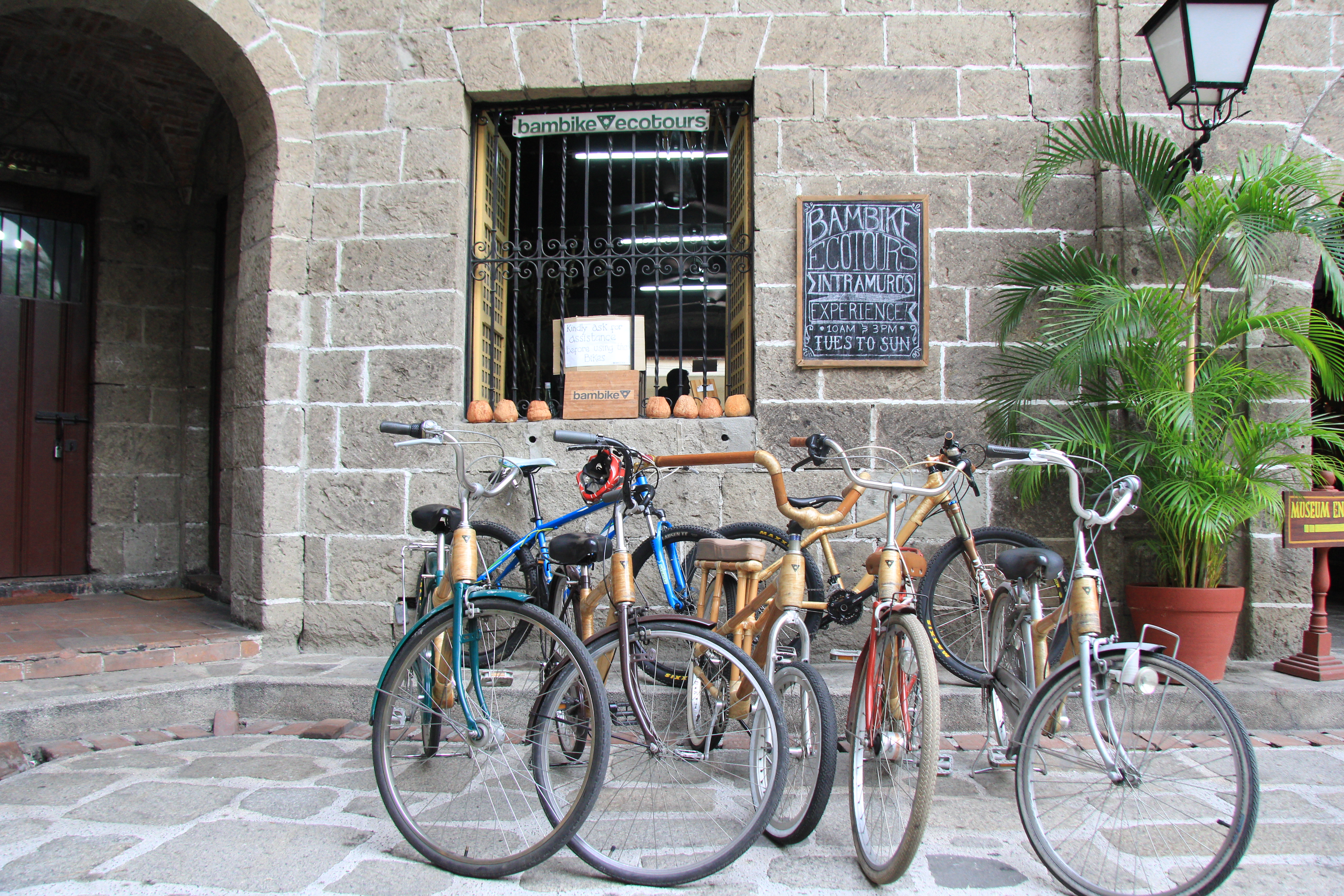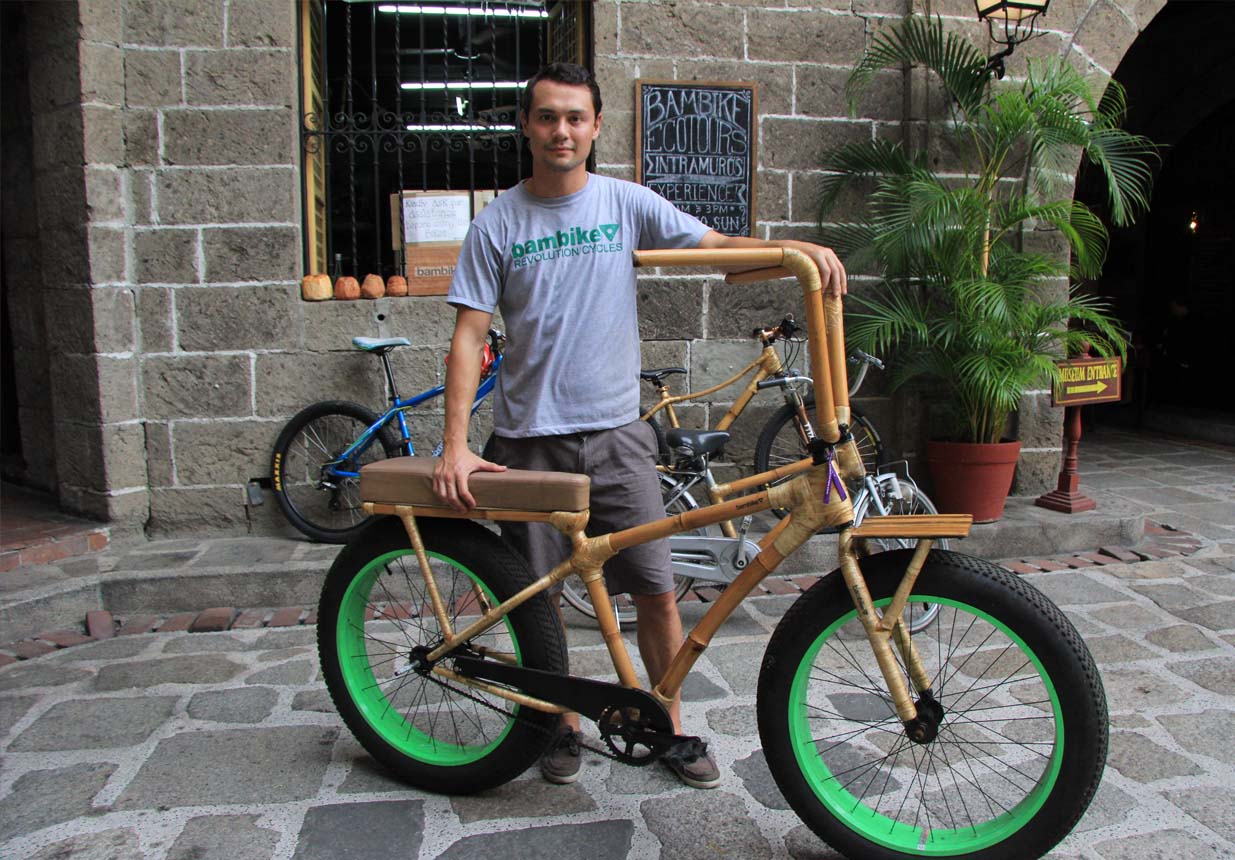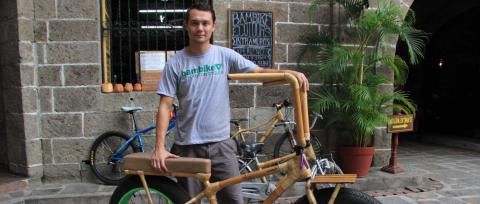
It takes relentless effort and hard work in order to create and maintain a sustainable program that will provide opportunities to many Filipinos as well as open doors to a unique innovation that is both eco-friendly and profitable. One such venture is Bambike – an idea that started in 2007 by Filipino-American Bryan Benitez McClelland.
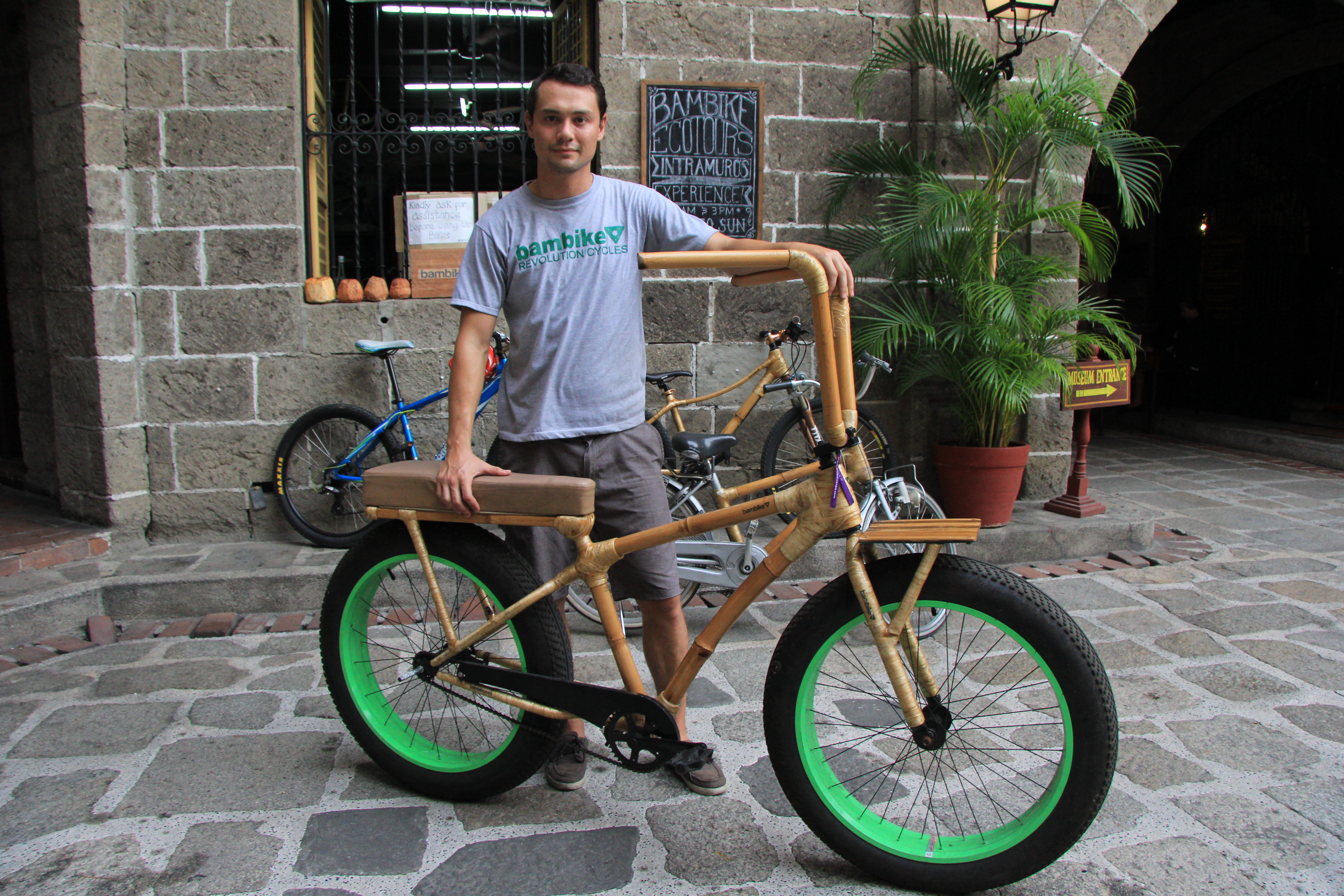
While volunteering for Gawad Kalinga (GK) resettlement in Victoria, Tarlac, McClelland was inspired by a bamboo bike building project in Africa. Thinking how it would be a good fit in the Philippines, McClelland pushed for the idea to happen in the country, firming up plans for Bambike in 2010.
Part of PLDT SME Nation’s immersion program in Silicon Valley, McClelland had always wanted to provide assistance to Filipino families within the community by providing them sustainable livelihood. “It’s a community development project for qualified low-income families. I decided to hand select a few competent builders from there and train them the skills necessary to build the bamboo bike,” he said.
From only two builders in Victoria, Tarlac, Bambike has added more full time builders both in its GK community in Tarlac and in Intramuros with nine and six people, respectively, amounting to a total of 15 employees.
Seeing a gap in the market when it comes to guided bike tours, McClelland started the Bambike ecotours on Earth Day in 2014. “We wanted to cater more to the local market and develop a way in which we could provide a service here in the Philippines,” McClelland said. “We started in Plaza San Luis Complex in Intramuros, which has been great because we’ve been able to take thousands of customers from over 70 different countries to share our Philippine heritage and experience riding around on a Bambike.”
As Bambike pursue growth through its sustainable program, McClelland thrives in the idea of bike tourism, highlighting possible expansion in Bambike ecotours in other places such as Silay in Bacolod, Vigan, and Subic. “There is a lot of potential in the Philippines for bike tourism, so we want to be a part of that growth and move into more Philippine heritage centers, especially in places with existing cultural tourism,” Mclelland said.
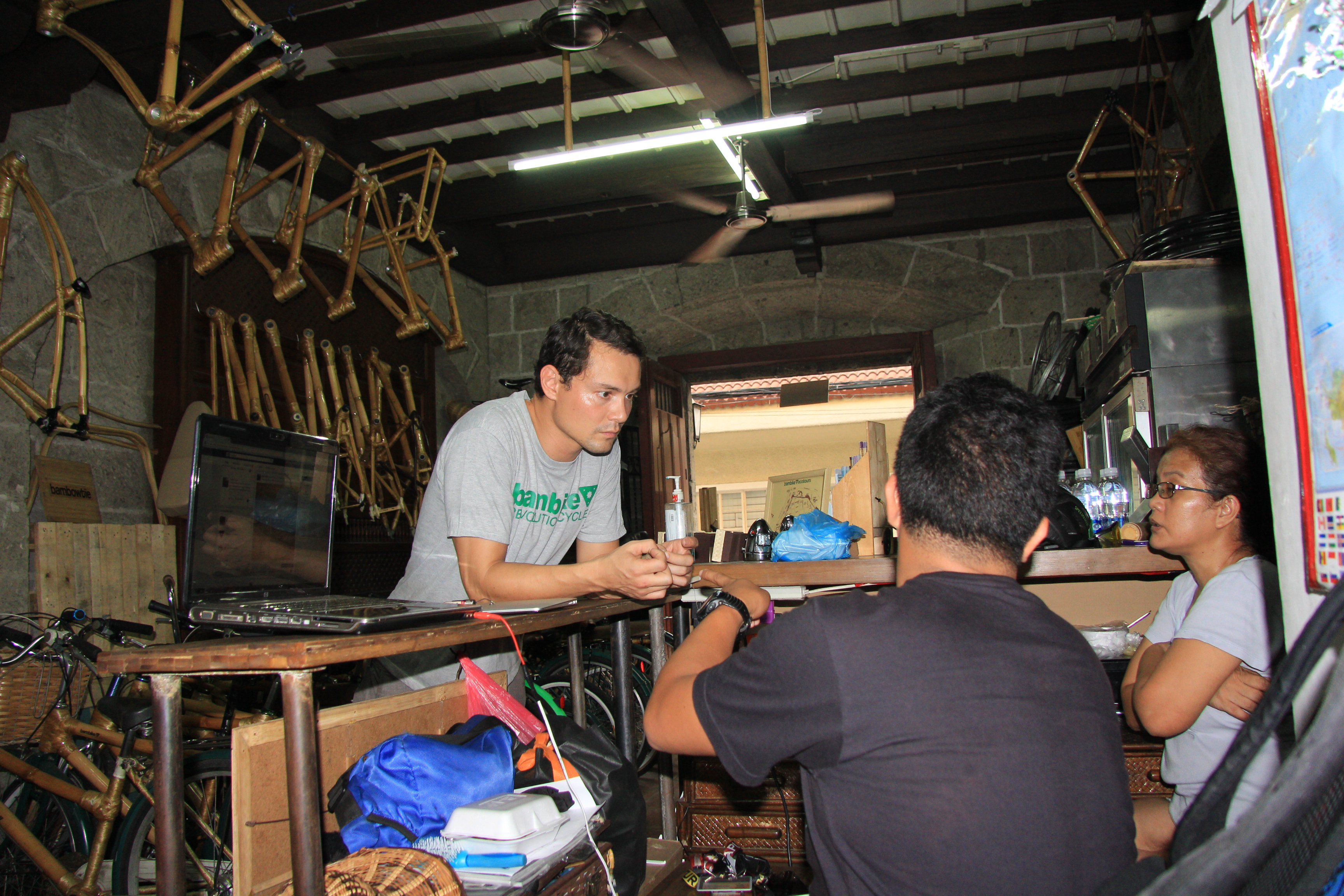
Thinking bigger
For McClelland, PLDT SME Nation’s Silicon Valley tour was a culmination of a mind-opening experience. The caliber of entrepreneurs, who were also hailed as PLDT SME Nation Bozz winners and finalists, inspired McClelland to continuously work towards creative collaboration. “The Silicon Valley experience enabled us to develop our business people’s skills and think on a larger scale,” McClelland said. “It was really inspiring to see successful Filipinos in the tech field and learn strategies from them as well as do workshops in order to further improve our businesses.”
As a developing ecosystem rises, where creative entrepreneurial Filipinos can work together towards the development of synergies, McClelland underscores the importance of thinking bigger and the use of data. “Data analytics and the scope to which we need to operate have a real impact. The Silicon Valley experience taught me a great deal on how to do collaborative business initiatives and maintain an entrepreneurial ecosystem that can inspire entrepreneurs in the Philippines to collaborate, expand business initiatives and really work together to make world-class Pinoy businesses,” McClelland said.
Thus, McClelland also focuses on innovating new bike models while optimizing the newly engineered bamboo treatment process. “We’re planning on developing a more scalable bike model wherein we can try to capture more of the market and make our Bambikes more affordable. We want to develop products that can be used by more people,” Mclelland said. “We’re utilizing the new engineering bamboo technique and joints system, which I think we will have a planetary advantage as well as focusing more on our brand awareness and the quality of our products.”
As Director of Sustainability in Enderun Colleges, McClelland is determined to create a new undergraduate degree program in sustainability, which will be the first Bachelor of Science in Sustainability in the country. “Through leadership by example, we are really looking forward to hone the next generation of Filipino leaders, focusing on sustainable development,” McClelland said.
In adapting to the ever-changing world of technology, McClelland plans to strategically incorporate technology in Bambike by utilizing smartphones to help develop self-guided tours. “There’s a lot of interesting technology out there which could be applied in Bambike,” McClelland said. “For the development of our self-guided tour, it can use applications on your smartphone that are GPS-enabled, making the entire process quicker and more efficient.”
“We also plan on possibly incorporating smart-lock systems into bikes, so that we can have bike-share programs and accessible mobility that can be integrated in our country’s tourism platform,” McClelland added.
Riding on strength
Passing the European standards for bike fatigue and impact testing, McClelland reassures that Bambikes are strong enough, emphasizing the steel-like quality of the bamboo. Bambikes are made of high quality bamboo, which are grown locally in the Philippines.
“Bamboo is arguably the greenest building material out there. When it is built in our bike frame it actually makes for a really nice bike ride because bamboo is naturally shock absorbent,” McClelland said. “Aside from the unique look and having the social component we have, one gets to have the performance of a normal bike but with a smoother ride quality. “
With the price varying on the range of components chosen by the customer, Bambike frames cost from P20,000 up to P55,000 with a five-year warranty. According to McClelland, the best-selling Bambikes include Mira Nila and Luntian, which are the urban road bike and mountain bike, respectively.
